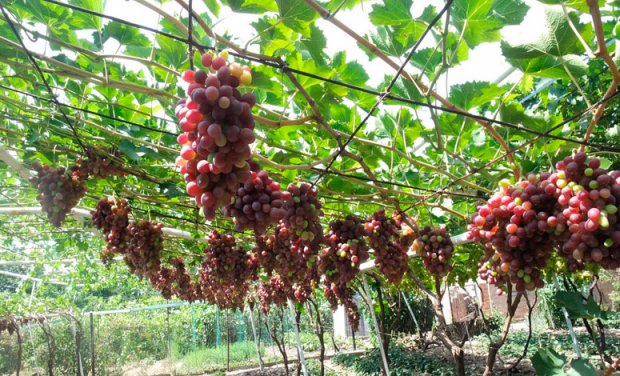
Grape Arched experienced growers recommend to beginners. It, like no other variety, is suitable for the development of planting, pruning, reproduction methods. The variety is frost-resistant, early ripening, so it can be grown in the vast expanses of a large country.
The name Arched was given to the variety for a reason, many gardeners use it as an element of garden design. Pergolas, arches, pergolas look decorative if they are entwined with powerful whips of grapes planted next to the structure.
Content
About selection
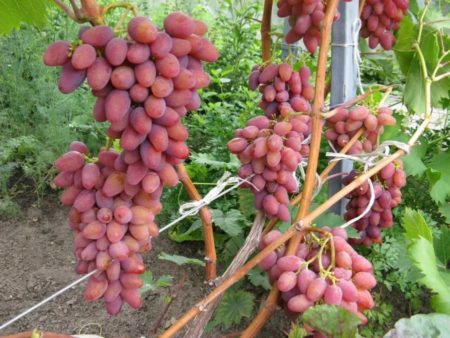
Work was carried out in the city of Novocherkassk. The breeders of the Ya.I. Institute were engaged in hybridization. Potapenko. The varieties were taken as the basis:
- frost-resistant (-23 ° C), precocious (110-115 days) Friendship with good immunity;
- medium-late, table, Intervitis Magaracha, which is resistant to fungal infections, frost-resistant up to -20 ° C.
Among winegrowers, other names of the hybrid form are also in use: Tsvetnoy, III 14-1-1, Pink Friendship.
Description
According to the technical characteristics of berries, the Arched hybrid is classified as a table variety. grape. The direction of use of the crop is fresh consumption. Bunches ripen early (115-125 days), in most regions they are removed during August, so the berries are eaten with pleasure. Craftsmen make homemade wines of good quality from Arched grapes.
Bushes are vigorous, the length of young lashes is not less than 3 meters. The proportion of fruitful shoots is from 65 to 80% of the total volume. Recommended load of 30-40 eyes per plant. Apply a medium cropping pattern (6-8 eyes) or short (3 to 4 eyes). The variety is characterized by high fertility in the lower part of the vine and 100% shoot maturation. They are covered with wood by the end of August.
Fruit Characteristics
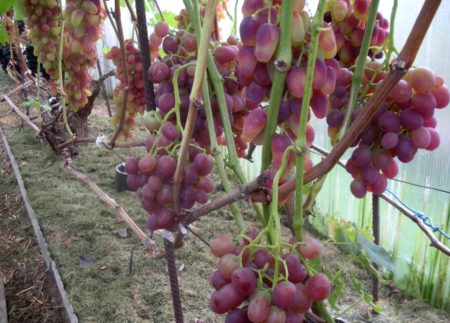
The size of the bunch is important for the winegrower; in Archesky it is average, weight is from 400 to 600 g. Their shape is conical, the structure is dense. The berries are one-dimensional, oval-nipple, 18 mm wide, 25 mm long, weighing about 6 g.
The color is memorable, appetizing in pink and red shades of different intensities. Clusters, well-lit by the sun, at the time of collection are colored stronger. The berries have a tasty, aromatic pulp containing a sufficient amount of juice (acids 5 g / l, sugars 16-18%). Tasting assessment of taste - 7.7 points. Thick skin, large bones deserve complaints. There are many of them in the berries.
Productivity
At the time of fruiting Arched grape enters at 2 years of age. On each fruitful shoot, 2 clusters are formed. Harvest begins in August. Clusters, due to their beautiful shape and original color, have a presentation, do not suffer during transportation.
Scope of use of the crop:
- sale;
- juice;
- wine;
- jam;
- from the leaves of cabbage rolls.
Attitude to diseases and pests
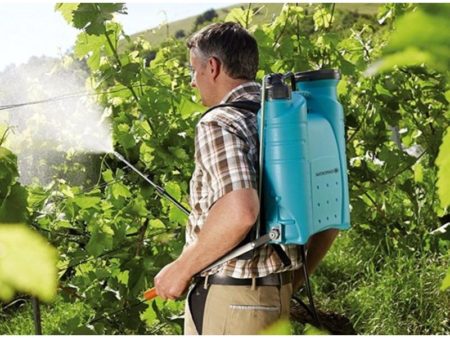
The variety is resistant to diseasesbut small preventative measures are needed. Until the buds are swollen, the vine needs to be treated with iron sulfate (1% solution). When symptoms of infection appear on young shoots, the bushes must be sprayed with Bordeaux fluid.
Of the pests, you need to be wary of the root phylloxera. Prevention measures help to avoid infection:
- row spacing weeding;
- mulch;
- sand application in the soil.
Parts of the plant affected by insects are destroyed, the vine is treated with an oil emulsion with lindane in early spring.
About landing features
Saplings of grapes Arched tenacious take root on any soil. For the cultivation of a long-lived, one should not simplify the planting technology. It is better to cook a pit in the fall. Its recommended sizes:
- depth - 0.8 m;
- diameter - 0.8 m.
On sandy soils, you can do without a drainage layer, on all the rest it is necessary. Crushed stone, broken brick, gravel can be poured to the bottom. To facilitate watering in the first years after planting, a large diameter pipe can be driven into the drainage layer.
Cover the pit with garden soil, which must first be enriched with organo-mineral fertilizers:
- make at least 2 buckets of humus;
- ½ bucket of ash;
- 0.5 kg azofoski.
Seedlings are planted in the second half of April. They are kept in water before landing.
Specifics of care
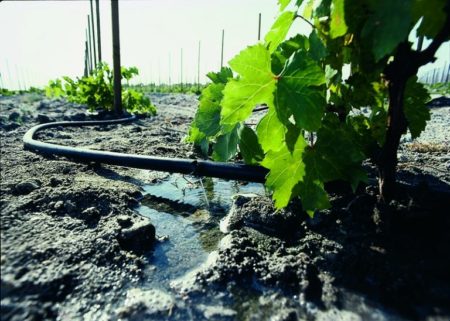
The first two years, watering is important. At least once a week, a young plant needs moisture. Water should be warm, in volume from 1 to 2 buckets per bush. Stop watering at the end of August.
Adult plants have a powerful root system that goes deep into the ground. With its help, the grape bush provides itself with moisture, so watering is rarely carried out. They are needed before flowering and at the time when clusters are formed.
Productivity increases if Arched grapes receive top dressing. He responds well to the introduction of organics. Every second year, the soil under the bushes is fertilized with humus (2 buckets per 1 plant), annually - 1-2 liters of ash.
Winter preparations
In the warm southern climate grape Arched in the winter do not harbor. The hybrid inherited good frost resistance from parental forms. But the frosty winters of the Central Strip are dangerous for him, so before the onset of frost, the vine is removed from its support, laid on the ground.
Until the snow fell, the lashes are covered with several layers of spunbond. In an area where there is little snow, spruce, ruberoid is used to protect against frost. Arched grapes are well restored after freezing.
Reviews
Vladimir, Krasnodar Territory
The bush is 4 years old and has great growth power. Already in the first year, he escaped at least 3.5 meters. He entered fruiting for 2 years, left several bunches, the berry was unpainted. In the third year he left 7 inflorescences, the clusters turned out not to be large (300 g), of a beautiful conical shape. The berry is bright red. The shoots of the variety ripen well, one of the first. During the season I spend 2 treatments, there were no diseases. I cover for the winter. I don’t like large bones in berries, but otherwise I’m happy with the variety. Many familiar growers also want to plant arched grapes.
Vitaliy, Syzran
Arched this year gave the signaling. I am not happy with the taste. Left for now, but next year I will decide his fate. Although there are no comments on disease resistance, and the clusters seem to be quite good.
Andrey, Moscow Region
The vine ripens well in our climate. It shows good frost resistance (up to - 24 ° C). High resistance to mildew, gray rot, to oidium - below. For the winter I cover with a double layer of film. Bushes are vigorous, decorative. During the season I spend 2 treatments with gibberellin, and I get commodity clusters.
Conclusion
The flavor of Arched is much simpler than other early table varieties. But the form has its advantages:
- easy to clean;
- has high frost resistance;
- practically not sick;
- marketable berries, do not crumple during transportation.
Despite the disadvantages (simple taste, thick skin, large bones), the variety is in demand in regions with cold winters.

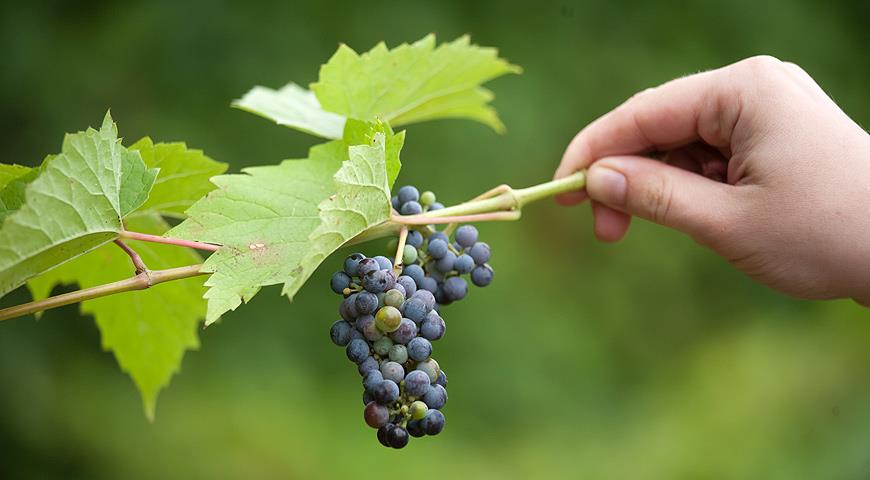 Non-covering winter-hardy grape varieties for Moscow region
Non-covering winter-hardy grape varieties for Moscow region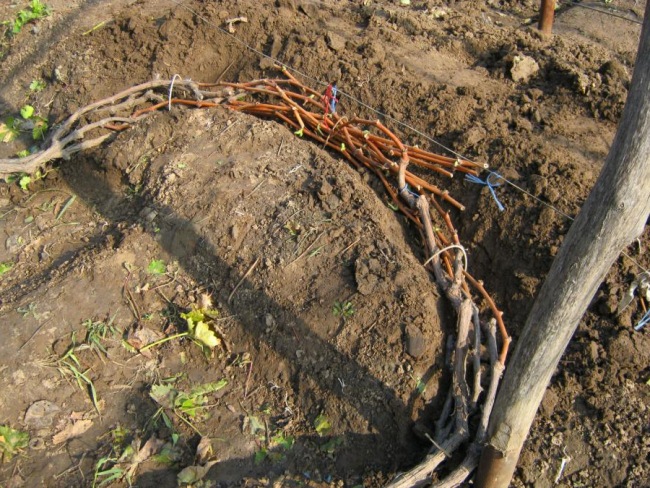 How to keep the vine in winter
How to keep the vine in winter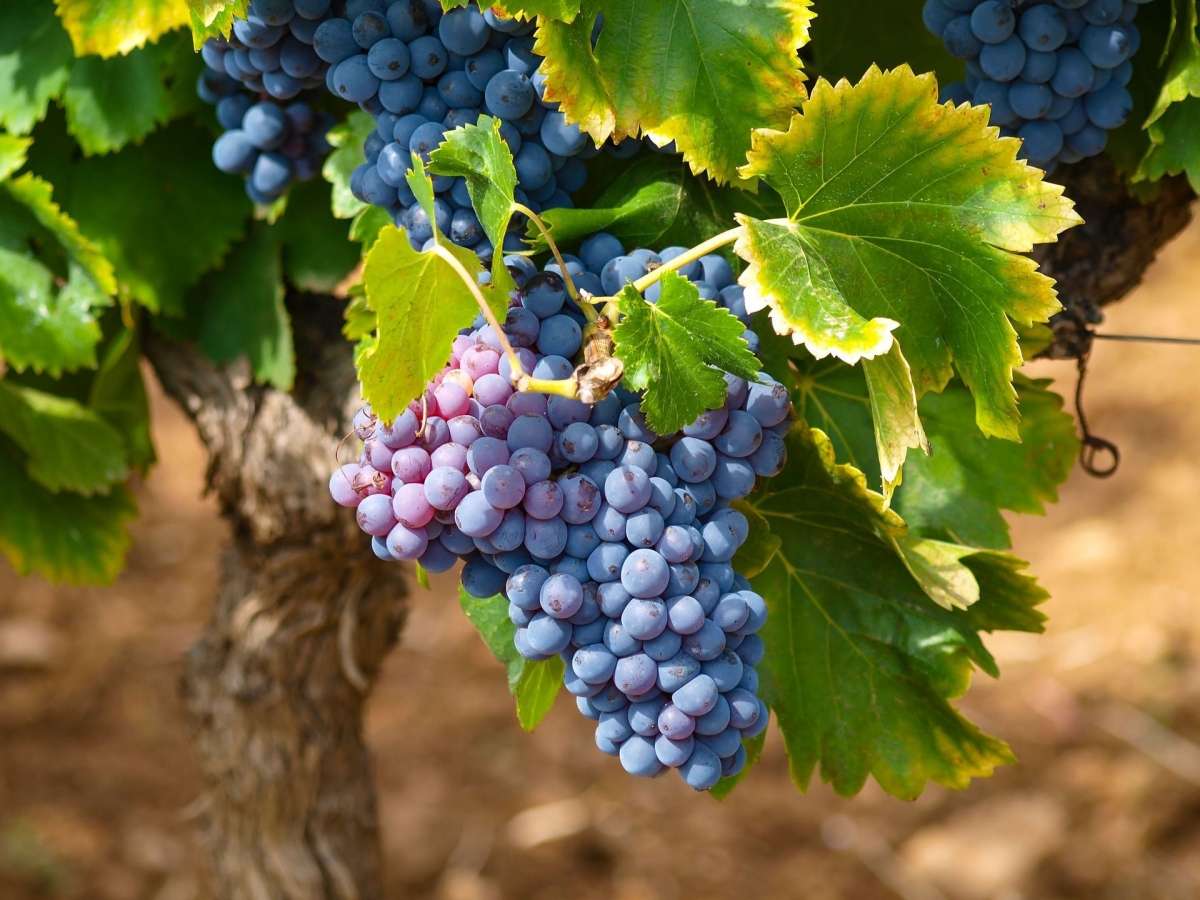 When can I transfer grapes to another place in the fall
When can I transfer grapes to another place in the fall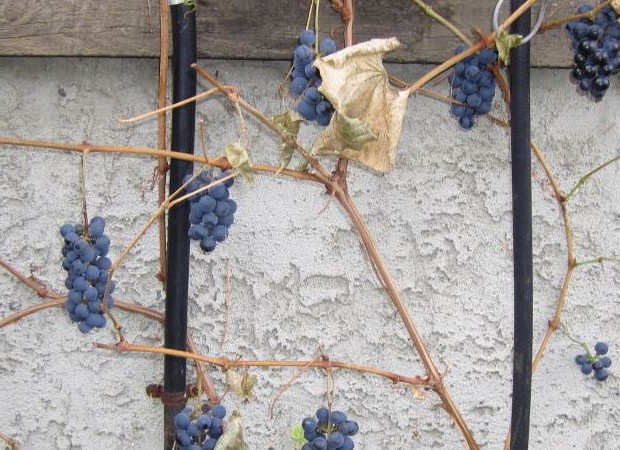 How to cover and prepare grapes for the winter in the suburbs
How to cover and prepare grapes for the winter in the suburbs